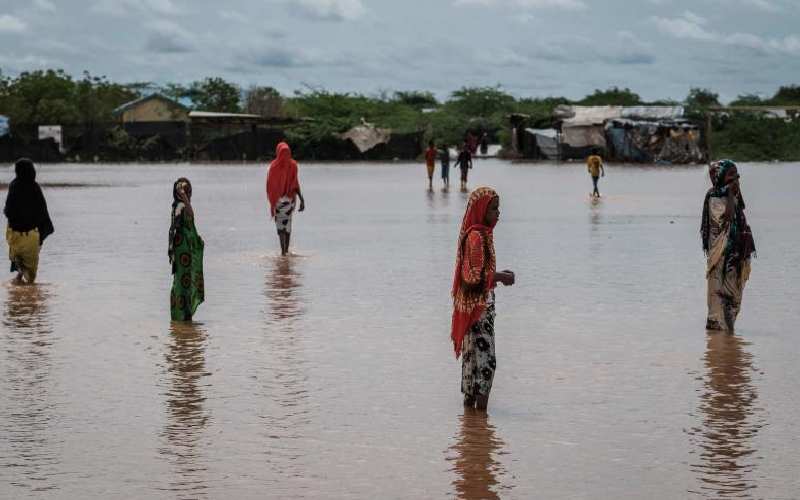
Refugees walk in floodwaters after a heavy rainy season at the Dadaab refugee camp.[Courtesy]
Since Kenya gained her independence in 1963, the founding fathers of this country attempted to establish a nation state that shall unite all the different nationalities within the territory. Our national anthem reflects this thinking in the last stanza where the need for unity is emphasised with the words, "In common bond united, build this our nation together". The assumption of course is that all the ethnic groups shall enjoy equal rights and justice under the law and services offered by the State. But truth be told, there are communities in Kenya who feel out of place in contemporary Kenya. The law does not treat everyone equally.